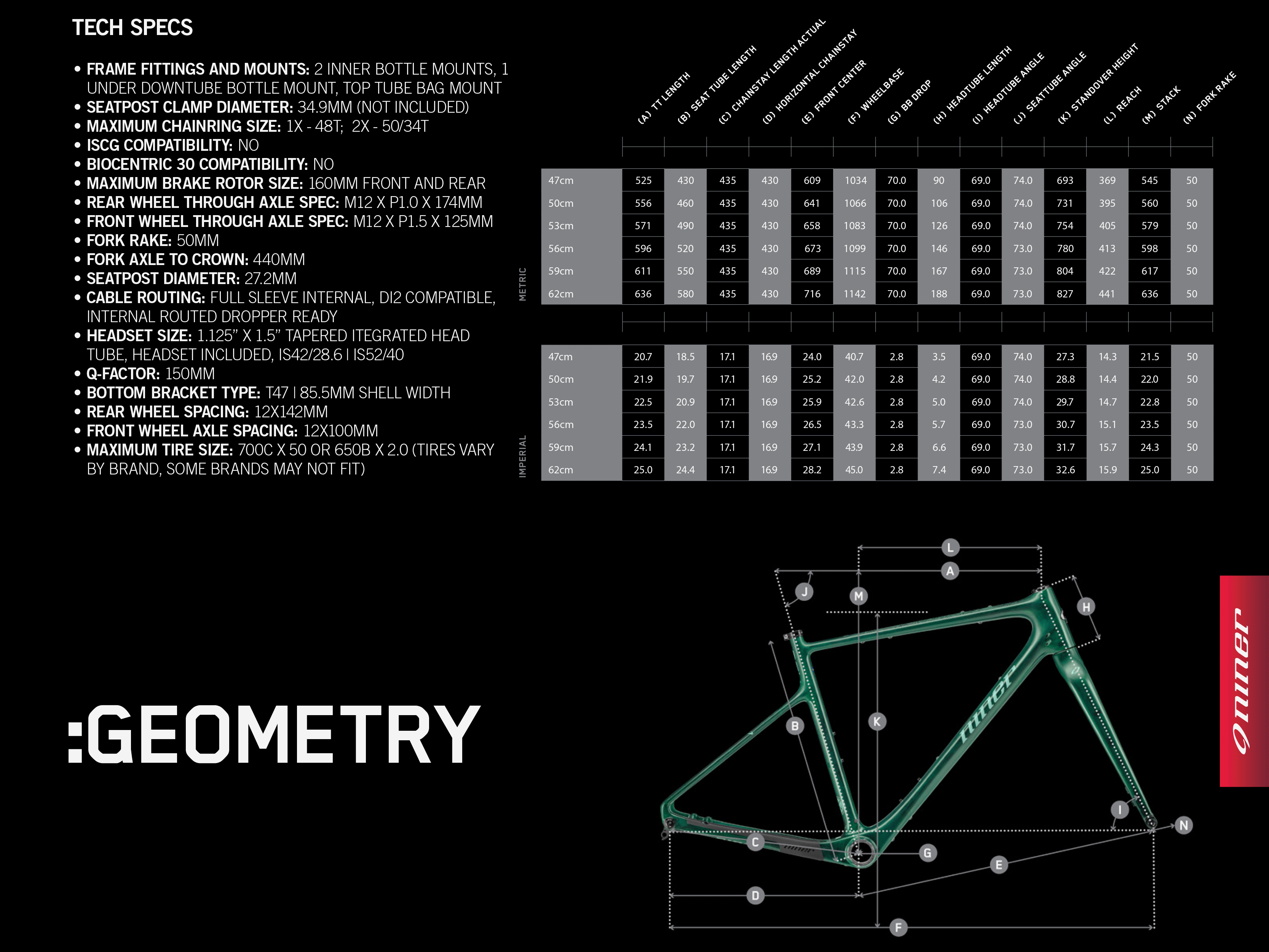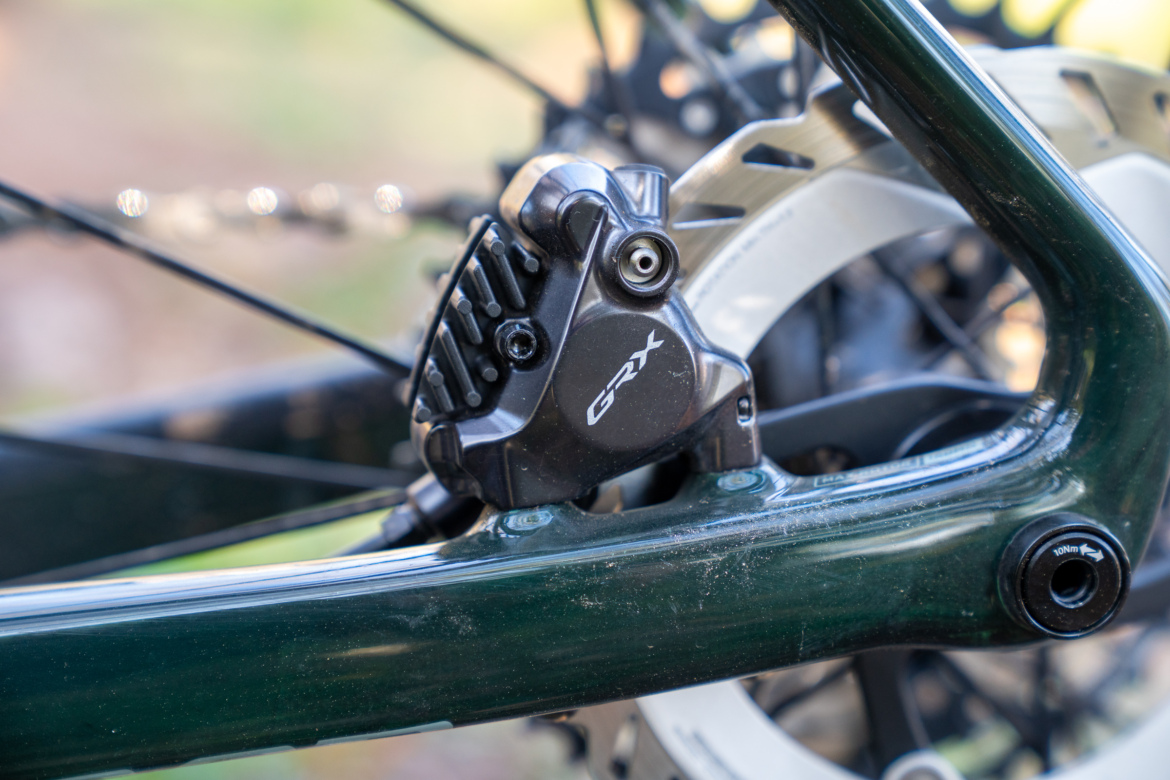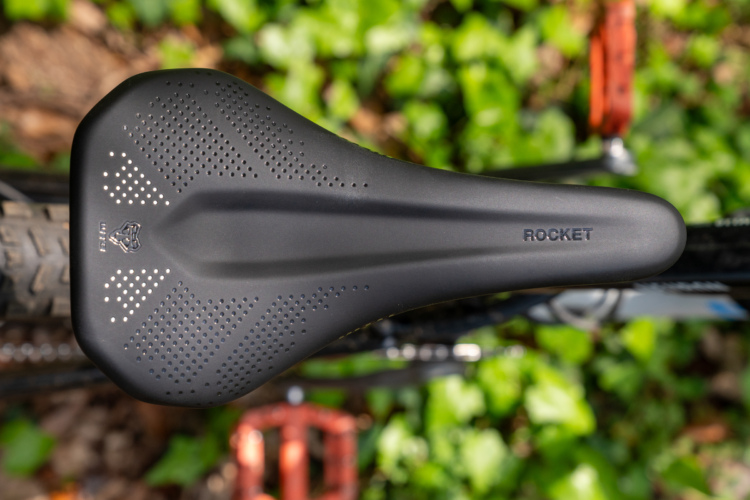
The Niner ORE (Off Road Explorer) is billed by the brand as a gravel bike that can “attack anything in the universe.” Of course, it’s one thing to attack; winning is another thing entirely. I’ve been testing the Niner ORE for a couple of months now and can confirm the bike is up for pretty much everything. With the right pilot, it could probably win more than a few age-category races, too.
Niner ORE key specs
- 700x50c tire clearance
- Weight: 9.76kg (21.5lb) with pedals, size 59cm
- Price: $4,499 as tested, Apex 1 build priced at $3,499
- Buy from Niner online

Riding gravel
The Niner ORE is a gravel bike first and foremost, with the ability to run tires up to 700x50c (about two inches wide). The ORE 9 RDO build I tested, priced at $4,499, is well-suited for fast gravel road riding thanks to the high-volume and fast-rolling Schwalbe G-One Allround 700x45c tires. The carbon frame feels stiff and efficient for putting power to the ground, but it’s not so stiff that you feel every piece of gravel in the road. On deeper, looser gravel, the Schwalbe tires start to feel a little unstable, so for the type of riding I prefer, I’d go for something a little knobbier like a WTB Raddler.
Share your Niner ORE review

On the trail
None of the Niner ORE build kits are particularly well-suited to singletrack riding, though the brand notes the ORE has dropper post routing and the geometry is suspension-corrected for a 40mm suspension fork if you want to add one. Niner also says the ORE is tested to mountain bike ISO standards, so the frame should hold up, plus it’s UDH-compatible if you want to go crazy with a set of flat bars and a SRAM Eagle Transmission MTB drivetrain.
Reviewer profile height: 190cm (6’3″) weight: 75kg (165lb) testing zone: Southeast, USA
I didn’t make any of those upgrades to my test bike, but I still rode plenty of singletrack. The 69° head tube angle takes some of the pucker-factor out of trail descents, and the tires do a good job smoothing smaller bumps and even some square-edge knocks. Just adding a dropper post to the build would make the ORE much more singletrack-capable. Given the stock build, I mostly rode trails just to shortcut a route, or to explore brief slivers of singletrack glimpsed from the road.

It’s fast and light enough for pavement, too
In addition to riding gravel and trails, I put in hundreds of road miles on the Niner ORE Wandrering around Atlanta. I found it’s just the right tool for rolling out of the driveway and onto the road to access far-flung spaces to get my tires dirty. To be clear, it’s not a road bike by any means, but for this mountain biker, it’s close enough.
RDO stands for “race day optimized,” so add racing to yet another thing the ORE is designed to do well.


Frame features
In addition to UDH-compatibility and internal routing for a 27.2mm dropper post, the Niner ORE includes many of the modern features one would expect from a 2026 model-year gravel bike. The rear triangle boasts clearance for tires up to 700x50c with room to spare for muddy rides.
There are three bottle mounts on the frame, with two inside the front triangle and one located beneath the down tube. There’s also a set of accessory mounts on the top tube for a small bag or tool roll.



The Niner ORE is compatible with a front derailleur for those who prefer to run their gravel bike 2X. My test bike came with a single chainring, which I found to be adequate for riding rolling terrain along a mix of surfaces. However, if I did a lot of riding in the mountains or extended runs on pavement, I might opt for a second chainring and front derailleur.


The bottom bracket area features a small hatch that provides access to cables and hoses within the frame. This should make home mechanics happy. However, the plastic hatch on my test bike doesn’t snap into place firmly, allowing dirt and water to enter the frame.
One weird thing I discovered is that the frame features Niner logo graphics on the underside of the chainstays. I’m thinking the only time anyone would ever see these graphics is if the bike is upside down, like for a trailside repair.

Frame geometry
Comparing the Niner ORE 9 to other gravel bikes, the 69° head tube angle is slacker than average, while the 73° seat tube angle is almost spot on the median. This gives the bike a composed feel on the descents without suffering noticeably on the climbs.
Additional geometry numbers provide mixed signals. The 70mm bottom bracket drop is one of the shortest we’ve seen, which effectively places the rider higher in/on the bike. This is yet another reason to seriously consider adding a dropper post to the ORE. The upshot is less chance of pedal strikes on chunky trails.

On paper, the Niner ORE geometry is fairly close to the Salsa Cutthroat, which is positioned as a bikepacking bike. Still, it’s not clear if the ORE has its own niche within the world of gravel, and if so, what that niche might be. As best I can tell, it’s designed to do it all, from bikepacking to racing to riding a little bit of singletrack.
In terms of sizing, I opted for a 59cm, but based on my test rides, I think the largest 62cm size would be a better fit, allowing me to stretch out a bit more without having to lean down as far to reach the bars.




The build includes a carbon Niner fork
The Niner ORE features a carbon Niner fork with 55mm rake painted to match the frame. Curiously, there aren’t any mounts on the fork, unlike the RDO fork the brand includes with their RLT gravel bike. Personally, I’d love to see a few mounts on the fork for bikepacking, aerodynamics be damned.

The Shimano GRX drivetrain and brakes are as solid as ever, and the DT Swiss G1800 aluminum wheels spin smoothly.
The Niner RDO carbon seatpost on the build I tested is not only designed to save weight, it’s also meant to reduce shock and vibration. I found the bike rides comfortably overall, though I’m not sure if I can tell how the post feels specifically.
Readers may recall the Niner MCR, a fully suspended gravel bike that turned a lot of heads at the time of launch. The ORE represents a much more mainstream approach, though that approach isn’t too far removed from the brand’s RLT, which they describe as a “multi-tool of a bike.”

Pros and cons of Niner ORE
Pros
- Lightweight and efficient carbon frame for pedaling
- Adaptable to suit a range of ride types with wide tire clearance and the ability to run suspension and/or a dropper post
- Quality construction and looks good, too
Cons
- Fork could use a set of mounts
- Capable enough for most rides, but not optimized for any one area

Bottom line
The Niner ORE 9 RDO is a safe bet for riders who want to do it all, thanks to progressive geometry, quality frame construction, and a modern spec.





















1 Comments
1 day ago